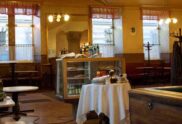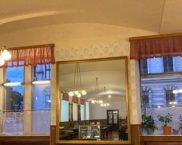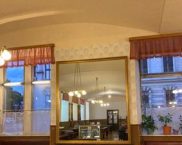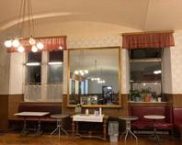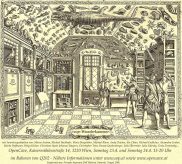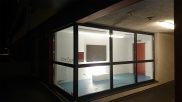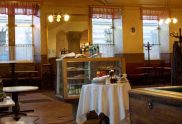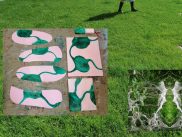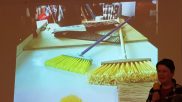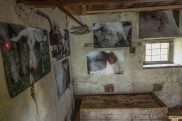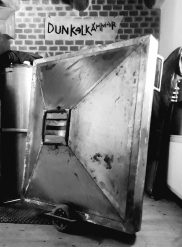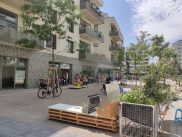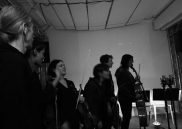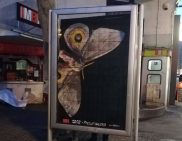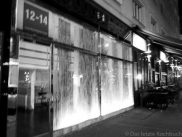// idea ////
“The Twin City model empowered by the close proximity of Bratislava and Vienna holds unbelievable hidden potential. […] The Twin City area of Vienna–Bratislava will enjoy great success in terms of competition as a production locality with other European agglomerations, if it strengthens further its economic integration and the forces of both cities are united.”
(http://visit.bratislava.sk)
So the myth of economic growth will make all those “unbelievable hidden potentials” bloom and people start to swing, right?
Well, Stadlnova is by no means a bonanza, and far off the beaten “Twin City” tracks. Nevertheless, Bratislava and Vienna are already united in it, though only through their marginal features. Its a kind of suburban marriage of convenience, that will allow us to shed a different light on the relationship of the two cities, and all that is and is not in-between these two cities.
Stadlnova, a fictive suburb somewhere between Bratislava and Vienna, is the conceptual frame and title of the artistic research project, which will start in spring 2011. As a first step, we will invite people to explore Stadlnova and develop their ideas and researches in the frame of two interdisciplinary workshops, taking them right to Stadlnova (practically suburban Vienna and Bratislava) on 24–26 June and 1–3 July 2011. The results of which will be published in an ‘Un-guidebook to Stadlnova’. Potential participants should be interested in some of these topics related to Stadlnova:
Everyday archaeology and utopia
What are oddities here and there? Try to find the ‘Stadlnova geezer’.. ‘krcma’ vs. ‘würstelstand’ .. could a ‘Krocha’ socialize in the ‘vyklenky’? What are/could be genuine everyday practises in Stadlnova? Which places/situations/stories could offer a transcendence of the everyday? Are there potentials for architectural/social activism? Any suburban myths that could be appropriated? Any traces of (failed) utopias? …
Growth and recession
What if Stadlnova’s economy/population would be shrinking? How would that change spatial and social patterns? What would happen to all those wet dreams of so called ‘developers’? Are there any hints of alternative economic practices? What are the social and material flows between the two cities? Could you imagine people from Marchegg (given we found it/them) commuting to Bratislava for work? Given equal economic conditions, would there be any exchange between here and there at all? …
Center and periphery / rural and urban
Where is the edge of the city? How does the landscape/cityscape change from one country to another? What about flows of migrants and commuters? Think about the consequences of Bratislava adjoining sleepy rural Austria .. what’s really happening in the areas between Bratislava and Vienna? Can you Seestadt Aspern? How does Vienna relate to Bratislava within the international locational competition? What could be the ‘future sound of Marchegg’? …
Design and appropriation
How do people appropriate (public) space in Stadlnova? Where can we apply ‘design thinking’ to improve the suburban condition? What would a map of Stadlnova look like? Where are possibilities for suburban upcycling? How to utilize the potential of urban voids? Think about possible tactics of mutual suburban infiltration between Vienna and Bratislava…
Losing and finding your way
What could you find by deliberately losing your way in Stadlnova (not in any esoteric sense)? Where would you end up taking the itinerary of a scavenger? What about specific spatial, visual and social codes? Are there any ‘wormholes’ leading from here to there? How to mash intercultural differences and language barriers? Where could an ‘un-sightseeing’ tour through Stadlnova be leading? …
In fact these topics are still open and supposed to be developed in the progress of the project. What is for certain: We are open for anyone having curiosity-driven interest related to these topics and Stadlnova itself, and we are striving for exchange with like-minded fellows.
One more thing: We are operating at the margins, also in relation to established academic and artistic circles. We love approaches like sampling or mockumentaries, and consider them as likely to cope with the ambivalent nature of Stadlnova, a zone aside of political correctness and conventions of the unnecessary kind.

